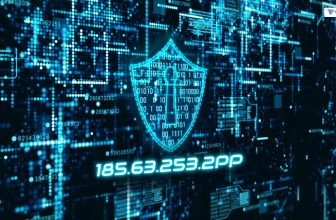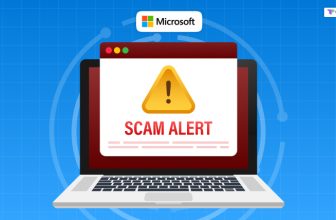
Today’s educational era is more dependent on technology. Hence, it is important to remain vigilant about potential threats in surveillance, at least when it comes to online study sessions. Whether you’re motivated by privacy concerns or a desire to stay focused, there exist various effective strategies to shield your PC from unwarranted scrutiny during your online learning endeavors.
In this article, we’ll delve into practical strategies to safeguard your privacy, uphold data security, and foster an undistracted online studying environment, particularly when exploring the query “write my paper me.”
Employ a Virtual Private Network (VPN):
Implementing a Virtual Private Network adds a layer of encryption to your internet connection, thwarting any attempts to intercept or trace your online activities. Through a VPN, you can obscure your IP address, navigating the web incognito. This not only shields your privacy but also acts as a deterrent against potential hackers or surveillance entities. Given the plethora of reputable VPN providers, opt for one tailored to your requirements, ensuring a secure connection.
Fortify Your Wi-Fi Network:
Ensuring the security of your Wi-Fi network is paramount during online studies to forestall unauthorized access and potential surveillance. Establish a robust password for your Wi-Fi router and activate WPA2 encryption. Eschew default network names or passwords susceptible to easy guessing. Regularly updating your router’s firmware becomes instrumental in maintaining optimal security. These measures substantially diminish the risk of monitoring your online activities.

These steps are instrumental in cultivating a secure and focused online studying experience.
Use Privacy-Focused Browsers and Plugins
Certain web browsers and plugins prioritize user privacy by blocking trackers, cookies, and other surveillance tools. Examples include Brave, Firefox, and Privacy Badger. These solutions not only bolster your privacy but also enhance your browsing speed by diminishing intrusive advertisements and tracking scripts. Integrating these privacy-centric browsers and plugins into your online experience serves to mitigate the likelihood of your online activities being subjected to monitoring.
Employ Encrypted Messaging Apps
When engaging in online discussions or group projects, it’s essential to use encrypted messaging apps to ensure secure communication. Apps like Signal, Telegram, and WhatsApp offer end-to-end encryption, which means only the intended recipients can access your messages. Avoid using platforms with weak encryption or those known to share data with third parties. By using encrypted messaging apps, you can protect your conversations from surveillance and maintain confidentiality.
Regularly Update Your Operating System and Software
Keeping your operating system and software up to date is crucial for maintaining data security and protecting against potential surveillance threats. Regular updates patch vulnerabilities and address security flaws that hackers or surveillance entities may exploit. Enable automatic updates or regularly check for updates manually to ensure you’re running the latest versions of your operating system, antivirus software, and other essential programs.
Be Mindful of Browser Extensions and Permissions
While browser extensions can enhance your online experience, some may compromise your privacy and security. Be cautious when granting permissions to extensions and only download those from trusted sources. Review the permissions requested by each extension and consider whether they’re necessary. Remove any extensions that you no longer use or those that have questionable privacy practices. By being mindful of browser extensions, you can reduce the risk of surveillance and potential data breaches.
Leverage Two-Factor Authentication:
To amplify your online security, contemplate activating two-factor authentication (2FA) whenever feasible. This supplementary layer of defense necessitates a secondary form of verification, like a distinctive code dispatched to your mobile device, in tandem with your password. By integrating 2FA, you can markedly diminish the risk of unwarranted access to your accounts and fortify the protection of your personal information against potential surveillance threats.
Educate Yourself on Phishing Techniques:
Phishing maneuvers are a prevalent tactic employed by hackers to infiltrate sensitive information. Maintain vigilance and acquaint yourself with strategies to discern and evade falling victim to these ploys. Exercise prudence with dubious emails, messages, or links that solicit personal information or encourage file downloads. By staying well-informed and adhering to sound online practices, you can curtail the likelihood of succumbing to phishing attempts, thereby safeguarding your privacy.
Regularly Assess Privacy Configurations:
Invest the time to scrutinize and fine-tune the privacy settings across your social media accounts, online platforms, and devices. Curtail the dissemination of personal information in public domains and restrict access to your private content to only trusted individuals. Routinely revisiting and updating your privacy settings aligns them with your preferred level of online privacy. By proactively managing these settings, you retain command over your personal data and minimize the susceptibility to surveillance.
Exercise Caution with Public Wi-Fi Networks:
When engaged in online studies, exercise prudence when connecting to public Wi-Fi networks susceptible to surveillance and potential hacking endeavors. Whenever feasible, opt for a secure and private network, such as a VPN, to shield your data and uphold your online privacy. Mindfully choosing the networks to connect to acts as a deterrent, diminishing the prospect of unauthorized access to your personal information.
Maintain Software Currency:
Consistently update your software portfolio, encompassing operating systems, web browsers, and antivirus programs, to sustain online security. These updates frequently encompass critical security patches that counter vulnerabilities and fortify defenses against emerging threats. Configure your devices to autonomously install updates or conduct periodic manual checks to ensure you benefit from the latest security features and safeguards.
Craft Robust and Unique Passwords:
Forge potent and distinctive passwords for each online account to safeguard your personal information. Steer clear of commonplace passwords or easily deducible details like your name or birthdate. Instead, integrate a blend of uppercase and lowercase letters, numbers, and special characters. Contemplating the use of a password manager enhances security by securely storing and generating intricate passwords for all your accounts.
Enable Device Encryption:
Safeguard your data from unauthorized access by activating device encryption on your smartphones, tablets, and computers. Encryption transforms your data into an indecipherable format, only decipherable with the appropriate encryption key. This imparts an additional stratum of security, particularly in cases of device loss or theft. Refer to your device settings or adhere to the manufacturer’s guidelines to enable encryption, thereby ensuring the safety of your personal information.
Participating in online learning presents a myriad of advantages, yet acknowledging and addressing potential surveillance risks is imperative. By adopting the aforementioned methodologies—ranging from VPN utilization to cautious Wi-Fi network selection—you can relish a secure and undistracted online studying experience. Always remember, the reins of your online privacy lie in your hands, compelling you to take proactive measures against surveillance and maintain authoritative control over your personal information.
Read Also:






